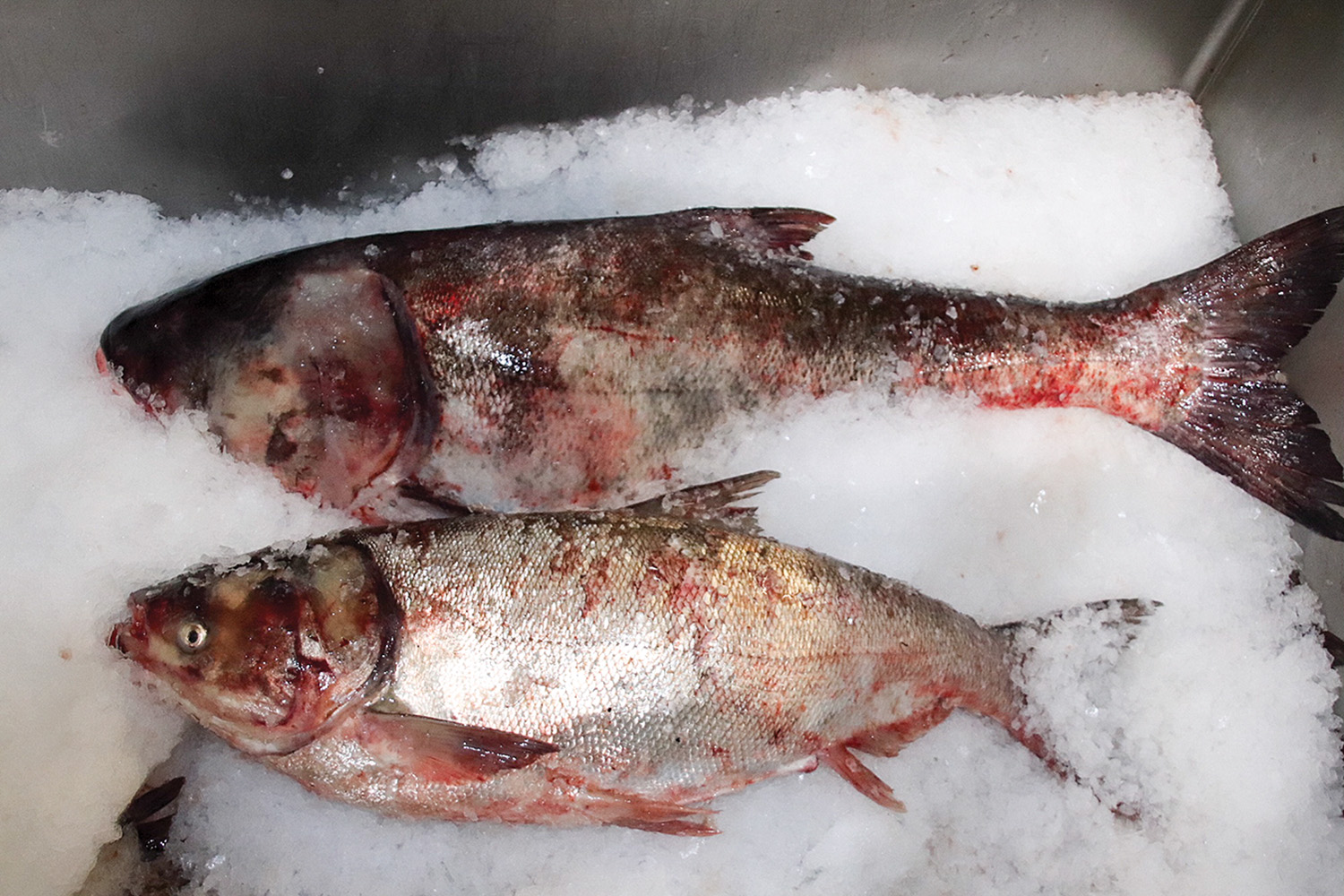Kentucky Gov. Andy Beshear cut the ribbon January 13 on a center designed to connect international investors with opportunities to develop products made from invasive carp. The Mighty Rivers Regional Center, established by Angie Yu, president and founder of Two Rivers Fisheries in Wickliffe, Ky., will operate across 14 counties in Kentucky, Tennessee, Illinois and Missouri to “further invest in Asian carp processing and value-added products,” Yu said.
“We strongly believe the worthy cause of helping with reducing the invasive species, Asian carp,” Yu said in an email to reporters. “We see this as a win-win situation for all of us, including our waters’ ecosystem, our workers, our customers and even our pets (treats for dogs/cats).”
In August, U.S. Citizenship and Immigration Services approved Mighty Rivers Regional Center as an EB-5 regional center. Such centers facilitate foreign investors in pooling efforts into large-scale development projects, allowing them to meet job creation requirements of the federal EB-5 program. Essentially, EB-5 regional centers connect investors with suitable projects.
Foreign investors participating in the EB-5 program can qualify for lawful permanent status in the United States either by investing at least $1.8 million in a new commercial enterprise in the United States or by investing $900,000 in a new project in a rural area or an area with high unemployment. The enterprise must create or preserve at least 10 jobs.
The first project the center has backed for investment is Nutrifish, Yu announced at the ceremony. The company primarily produces fish meal and fish oil for animal food additives, including both pet and livestock food.
Nutrifish is locating next to the existing Two Rivers Fisheries, with the buildings connected by a pipe. Nutrifish will be able to use small fish as well as fish waste products that Two Rivers cannot use.
Removing Invasive Fish, Adding Product Value
Yu said the success of her businesses is proof that one person’s “trash fish” is another person’s treasure.
Yu came from Los Angeles to western Kentucky 12 years ago, spurred by the prevalence of invasive carp in the region. The fish are popular for eating in other countries, but because of over-fishing, China instituted a ban on harvesting them from the Yangtze River, leaving demand at an all-time high.
Yu turned a spec building in Wickliffe’s industrial park into the area’s first processor of invasive carp. Commercial anglers bring in their catch to the facility. Fish are then processed and packaged for shipment to 12 different countries. In the intervening years, Two Rivers has become the largest processor and exporter of Asian carp in the United States. Yu said the company has processed 30 million pounds of carp so far, with a goal of 50 million pounds by 2030.
Yu has also been a major force behind the ongoing development of the 72-acre International Fisheries Park in Wickliffe. Several lots have been sold to Asia-based investors that will rely on Two Rivers as a supplier of processed carp for making products ranging from dumplings, patties, eggrolls and sausages to nutritional supplements, pet food, fertilizer and even carp “leather” and carp bone jewelry.
At the same time, the harvest and processing of the invasive fish is seen as a win for those in the inland marine industry, along with fish and wildlife officials and those in environmental protection, who largely consider the fish a nuisance and have erected barriers in an attempt to prevent their spread, especially into the Great Lakes. The jumping fish have knocked into people and equipment on commercial vessels, causing accidents in some cases, while also decimating native fish populations and leading to declines in sports fishing and bass tournaments, once prevalent on Kentucky Lake, an impoundment of the Tennessee River, and Lake Barkley, an impoundment of the Cumberland River, in western Kentucky and Tennessee.
Yu sees her business as perfectly positioned to solve several problems at once by encouraging the regional harvest of Asian carp, thereby reducing their ability to reproduce and cause damage, while also stimulating the local economy and feeding those with an appetite for fish.
Celebrating The New Center
Roughly 50 people attended the ribbon-cutting celebration, which included entertainment from Chinese percussionists, samples of carp eggrolls and jerky and two large displays of products made from carp. A sign hung behind some of the products intended for human consumption read, “If we can’t beat ’em, eat ’em.”
“Look at all of these projects using every single bit of a fish that was known as invasive,” Beshear said.
He also celebrated other regional economic successes, presenting cardboard checks for previously announced projects, including $300,000 in Kentucky Product Development Initiative (KDPI) grant funding for the continued development of the planned West Kentucky Regional Riverport Authority in Wickliffe.



